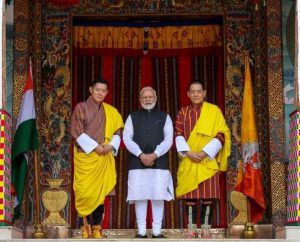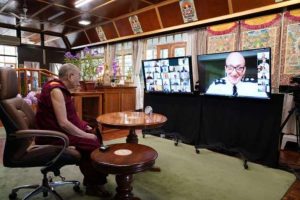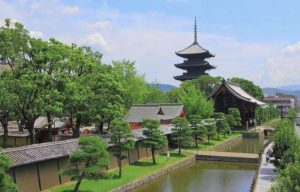One of the more irksome things about contemporary living is the constant, gleeful denigration of the individual state of solitude. Instead of being praised as an essential part of good spiritual living, the solitary state is consistently and probably deliberately being confused with the lonely state. Loneliness is a state of mind, and a person can feel lonely even in the midst of many friends. The industrialized city, so said the Romantics of the 18th and 19th centuries, was the perfect example of real loneliness: cities are more populous than rural areas but residents are more isolated, there are more individuals per square mile but the sense of community is weaker, and it is in the city where the divide between our lifestyles and our hearts is most obvious.
Contrast this with solitude, both a physical and mental state of being that had been praised by all the great religious leaders and celebrated by the contemplative traditions. The Buddha, as is well known, attained enlightenment in what is known to be actually a common ascetic tradition: by withdrawing into silence and meditating. After his enlightenment and dispensation, the Buddha never lost touch with his ascetic roots, frequently withdrawing to seclusion to meditate after giving his sermons. Similar stories can be found in the lives of the founders of almost all great faiths, where solitude is so important that they could not have achieved the insight they did without it. The narrative simply would not work without solitude.
Why the emphasis on solitude? Simply put, because humans need it. It is true that we are social animals, and most of us want to feel accepted by a community and to be part of the everyday interactions of friends and family. But we live in the “age of Facebook,” where I can tell my four hundred friends not only what I’m thinking and doing, but also where I am on the globe (I can check in at a specific place like a particular restaurant) and which of my friends are near me. In my opinion, this is a hyper-social period of history. We are tuned in, pretty much 24/7, to the activities and opinions of others. We are irrevocably turning ourselves outwards, every waking heartbeat of the day, without giving a second thought to turning inwards. In this environment, how on earth is it possible to develop serenity? How is it possible to sit down for even five minutes and do nothing, think quietly and observe oneself? I know too many who have laughed in my face for even suggesting that they sit down for five or ten minutes and do nothing. It has become perfectly normal to fritter away a couple of hours on Facebook or with friends in person, but even just fifteen minutes of solitary meditation is now seen as something superhuman, done only by meditation masters of the strictest monasteries. Then I tell them that lay Buddhists, who have practiced, often manage as long as half an hour, and Buddhism’s real deal – our monks – do upwards of an hour.
Watch their jaws drop in disbelief at this contemplative lifestyle that is becoming rapidly lost.
We need to make solitude fashionable again. It is an underrated state of being that is actually very conducive to good ideas, peace, inspiration, and spiritual practice. When we say the world is interconnected, we do not mean to say that we must be connected to the world’s social activities every second of our lives. No one is saying we shouldn’t use Facebook or the Internet, but I remember being stuck without a connection from mid-June to early August and that was perhaps the most productive period I had this year. Not much more needs to be said.
There is one very insignificant anecdote that I have; so minor and trivial that it’s a surprise I still remember it. It was late afternoon to early evening and I was walking past a restaurant, where I saw a senior guy in a suit eating by himself. I saw him while I was passing the restaurant window. I was walking behind two youngsters, probably around my age, who laughed to each other as they saw the same sight: “What a loser,” they guffawed meanly and idiotically, “eating all by himself.”
I had no idea that such a normal deed such as eating food alone constituted such a major social sin. It seems that these days, solitude is being condemned even at the most trivial level – I can’t even go eating out by myself without being labeled a loser, outcast, or lonely dweeb! I wonder what those two youngsters would have thought of the Buddha, who made an active effort to be alone?













